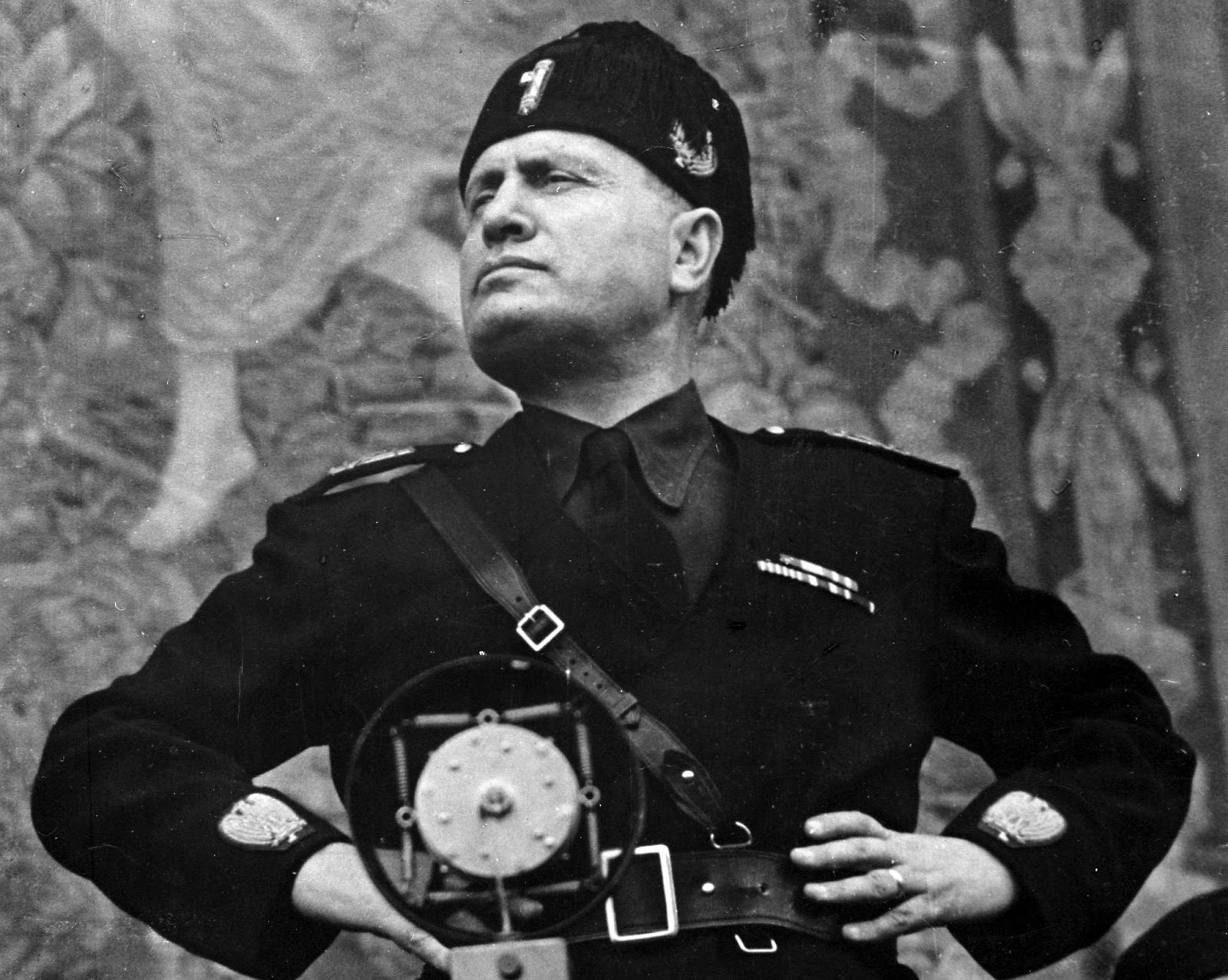Understanding Benito Mussolini: Definition And Insights
Benito Mussolini was a pivotal figure of the 20th century, known for his role as the leader of Fascist Italy and for his unique and controversial political ideology. His actions and policies have left a lasting impact on global politics and history, leading many to seek a clear understanding of his definition and legacy. By exploring Mussolini’s life and ideology, we can gain a deeper insight into the complexities of authoritarianism and its implications.
The term "Benito Mussolini definition" often refers to not only the historical figure himself but also to the broader implications of his political philosophy, known as Fascism. Mussolini's regime was characterized by nationalism, militarism, and a strong central government, all of which have shaped how modern political movements are viewed today. Understanding this definition is essential for grasping the dynamics of power and governance during a tumultuous period in European history.
As we delve into Mussolini’s biography, ideology, and impact, it becomes evident that his definition transcends mere historical facts; it invites an examination of the ethical and moral questions surrounding authoritarian leadership and its effects on society. This exploration will provide a more nuanced understanding of not only Mussolini himself but also the dangers that can arise when power is concentrated in the hands of a few.
What is Benito Mussolini's Biography?
Benito Mussolini was born on July 29, 1883, in Predappio, Italy. He came from a humble background, with a father who was a blacksmith and a mother who was a teacher. Early in his life, Mussolini was influenced by his father's political beliefs, which leaned towards socialism. He later became a prominent figure in the Italian Socialist Party but eventually broke away to form his own ideology.
| Personal Details | Bio Data |
|---|---|
| Name | Benito Amilcare Andrea Mussolini |
| Date of Birth | July 29, 1883 |
| Place of Birth | Predappio, Italy |
| Date of Death | April 28, 1945 |
| Political Party | National Fascist Party |
| Position | Prime Minister of Italy (1922-1943) |
What Constitutes the Benito Mussolini Definition?
The "Benito Mussolini definition" can be encapsulated by his doctrine of Fascism, which emphasizes the following key elements:
- Nationalism: The belief in the superiority of the nation and its interests over individual rights.
- Authoritarianism: A strong central government led by a dictator who suppresses dissent.
- Militarism: The belief in the necessity of military power to achieve national goals.
- State Control: The economy and society are controlled by the state to promote national interests.
How Did Mussolini Rise to Power?
Mussolini's ascent to power began after World War I, during a time of social unrest and economic instability in Italy. His charismatic speeches and promises of national rejuvenation rallied support among war veterans and the middle class. In 1922, he led the March on Rome, which resulted in him being appointed Prime Minister by King Victor Emmanuel III. Once in power, Mussolini quickly established a totalitarian regime, suppressing opposition and consolidating power.
What Are the Key Features of the Benito Mussolini Definition?
Understanding the "Benito Mussolini definition" also involves recognizing the essential characteristics of his regime:
- Censorship: Control of the media and suppression of free speech were hallmarks of Mussolini's government.
- Propaganda: The use of propaganda to promote the Fascist ideology and glorify Mussolini himself.
- Corporate State: Mussolini aimed to create a corporate state where various sectors worked together under state control.
- Expansionism: Mussolini sought to expand Italy’s territories, leading to military campaigns in Africa and the Balkans.
What Were the Consequences of Mussolini’s Rule?
The consequences of Mussolini's dictatorship were profound and far-reaching. His aggressive foreign policy led Italy into World War II on the side of Nazi Germany, which ultimately resulted in military defeats and the devastation of the Italian economy. Domestically, his policies led to the suppression of political dissent and the erosion of civil liberties. Mussolini's regime is often studied as a cautionary tale about the dangers of unchecked power and the fragility of democratic institutions.
How is Mussolini Remembered Today?
Today, the "Benito Mussolini definition" often serves as a reference point in discussions about authoritarianism and Fascism. His legacy is a complex one, marked by both the achievements of his early years and the catastrophic consequences of his later policies. Educational institutions and historians continue to analyze his life and the impact of his ideology on modern political thought. Understanding Mussolini is crucial for recognizing the signs of authoritarianism in contemporary society and for safeguarding democratic values.
What Lessons Can We Learn from Benito Mussolini’s Definition?
The study of Benito Mussolini and his definition of Fascism offers important lessons for current and future generations. These include:
- The Importance of Vigilance: Societies must remain vigilant against the erosion of democratic norms and values.
- The Dangers of Nationalism: Extreme nationalism can lead to divisive and harmful policies.
- The Role of Education: Educating citizens about history and political ideologies is essential to prevent the rise of authoritarianism.
In conclusion, the "Benito Mussolini definition" encapsulates a significant chapter in history, rich with lessons about power, governance, and the balance between authority and liberty. By examining Mussolini's life, ideology, and the consequences of his rule, we can better understand the complexities of political systems and the importance of protecting democratic values in our society.
Unraveling The Mystery Of Sylvia Plath's Death
Discovering The Enigmatic Zayn Malik
Unraveling The Legacy Of President Nixon



